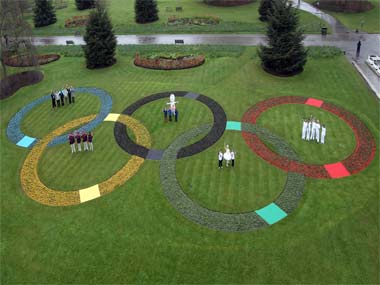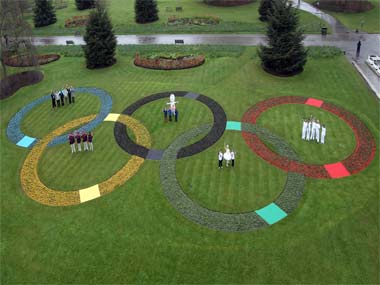Who gains from sponsoring the Olympics, the International Olympic Committee (IOC) or the 11 sponsors? An article in
The Economist
says both. The sponsors gain from the games as it shows that if they can handle the Olympics, they can handle any project. The IOC, which does not allow advertising inside the stadium including on the athlete’s kit, reaps the benefit of getting brand retention via logo on everything, from billboard to chocolate bar to television set. [caption id=“attachment_388109” align=“alignleft” width=“380”]
 Reuters[/caption] In other words, the sponsors pay and give publicity to the Olympics. How do the sponsors benefit? While for smaller regional players, Olympics are a springboard to reach out globally, for bigger brands it helps “look noble and global”. Generally, companies that sponsor generously tend to do well, the report says citing a study.There are only eleven global sponsors (known as TOPs) for the games and they pay fat sums to the IOC to clinch the right to use the Olympic brand. Unlike pre-1980s, the IOC sells “much bigger contracts to fewer sponsors”, the report says, adding the total deal size for the sponsors for 2009-12 is $957 million. The article also has the case of G4S, a Britain-based security company, which failed miserably in showing that it can handle the Olympics. “G4S’s share price did a passable imitation of an Olympic diver,” the report says. Advertisers too have a field day. The Olympics are expected to pump up the US ad market by $800m-$1 billion this year. Will the Olympics, or any event of such proportion, provide any economic returns of the the host countries? The report quotes studies and says that the net effect is negligible. Reason? If there is an influx of sports-mad tourist, others, who are not keen on sports, will cancel trips to fearing the crowd.
Reuters[/caption] In other words, the sponsors pay and give publicity to the Olympics. How do the sponsors benefit? While for smaller regional players, Olympics are a springboard to reach out globally, for bigger brands it helps “look noble and global”. Generally, companies that sponsor generously tend to do well, the report says citing a study.There are only eleven global sponsors (known as TOPs) for the games and they pay fat sums to the IOC to clinch the right to use the Olympic brand. Unlike pre-1980s, the IOC sells “much bigger contracts to fewer sponsors”, the report says, adding the total deal size for the sponsors for 2009-12 is $957 million. The article also has the case of G4S, a Britain-based security company, which failed miserably in showing that it can handle the Olympics. “G4S’s share price did a passable imitation of an Olympic diver,” the report says. Advertisers too have a field day. The Olympics are expected to pump up the US ad market by $800m-$1 billion this year. Will the Olympics, or any event of such proportion, provide any economic returns of the the host countries? The report quotes studies and says that the net effect is negligible. Reason? If there is an influx of sports-mad tourist, others, who are not keen on sports, will cancel trips to fearing the crowd.
The business of Olympics
FP Editors
• July 23, 2012, 20:36:34 IST
Who gains from sponsoring the Olympics, the International Olympic Committee (IOC) or the 11 sponsors? An article in The Economist says both.
Advertisement
)
End of Article